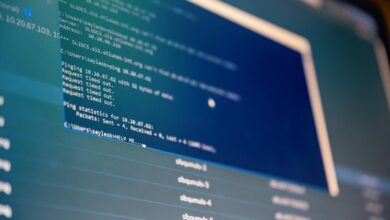We Learn 2.0: Revolutionizing Education in the Digital Age

The evolution of education through technology marks a significant shift in how knowledge is acquired and shared. Online learning platforms have emerged as key players, offering diverse content accessible from any location. This transformation allows for tailored educational experiences, fostering collaboration among peers in virtual settings. As gamification and artificial intelligence integrate into learning, they reshape motivation and instructional methods. What implications does this have for the future of education and workforce readiness?
The Rise of Online Learning Platforms
How has the surge of technology influenced the landscape of education? The rise of online learning platforms has significantly enhanced online course accessibility, allowing diverse learners to engage with content from anywhere.
This shift fosters virtual classroom engagement, promoting interactive experiences that transcend geographical barriers. Consequently, students can pursue knowledge freely, tailoring their educational journeys to individual needs and preferences in the digital age.
Personalizing Education Through Technology
As technology continues to advance, the personalization of education emerges as a pivotal trend, reshaping how learners interact with content and engage in their studies.
Through adaptive assessments and learner analytics, educators can tailor curricula to individual needs, enhancing motivation and fostering independence.
This personalized approach not only promotes deeper understanding but also empowers learners to take control of their educational journeys.
Collaborative Learning in Virtual Environments
Increasingly, educators recognize the potential of collaborative learning in virtual environments to enhance student engagement and foster a sense of community.
Through peer feedback and digital collaboration, students engage in virtual teamwork, participate in online discussions, and tackle remote problem solving.
Interactive workshops and synchronous learning promote shared resources, creating an enriching atmosphere where learners can thrive collectively, thus redefining educational experiences.
Gamification: Engaging Learners in New Ways
Gamification transforms traditional educational practices by integrating game design elements into learning environments, thereby enhancing student motivation and engagement.
By employing a points system and rewards mechanics, educators create immersive experiences. Feedback loops reinforce learning, while competition elements stimulate interest.
Furthermore, narrative integration and skill badges encourage achievement, fostering social interaction among peers. This dynamic approach nurtures a sense of freedom in the learning process.
The Role of Artificial Intelligence in Education
Artificial intelligence is transforming education by facilitating personalized learning experiences tailored to individual student needs.
Through intelligent tutoring systems, AI can assess a learner’s progress and adapt instructional strategies accordingly, enhancing engagement and comprehension.
This integration not only fosters academic success but also equips students with skills necessary for a technology-driven future.
Personalized Learning Experiences
Personalized learning experiences are transforming the educational landscape, driven by advancements in technology and artificial intelligence.
By utilizing adaptive assessments, educators can tailor individualized curricula that meet the unique needs of each student. This approach fosters engagement and autonomy, allowing learners to progress at their own pace.
Ultimately, personalized learning empowers students, promoting a sense of ownership over their educational journeys.
Intelligent Tutoring Systems
Intelligent tutoring systems (ITS) represent a significant evolution in educational technology, harnessing the capabilities of artificial intelligence to enhance student learning outcomes.
By providing adaptive feedback tailored to individual learning paths, ITS utilize learning analytics to identify strengths and weaknesses.
This personalized approach not only fosters deeper understanding but also empowers students, promoting autonomy and engagement in their educational journeys.
Preparing Students for a Global Workforce
As education systems evolve to meet the demands of a rapidly changing global economy, it becomes essential for institutions to equip students with the skills necessary for success in an interconnected workforce.
Emphasizing cross-cultural communication and fostering global citizenship, educators must prepare learners to navigate diverse environments, thus empowering them to thrive and contribute meaningfully to a collaborative, international marketplace.
Conclusion
In the brave new world of We Learn 2.0, where students are but avatars in a digital utopia, one might wonder if human interaction is merely a glitch in the system. With personalized algorithms and gamified learning, education has transformed into a high-tech video game where the stakes are as real as the virtual badges earned. As artificial intelligence shapes future minds, who needs the wisdom of seasoned educators when a chatbot can dispense knowledge with the charm of a toaster?




